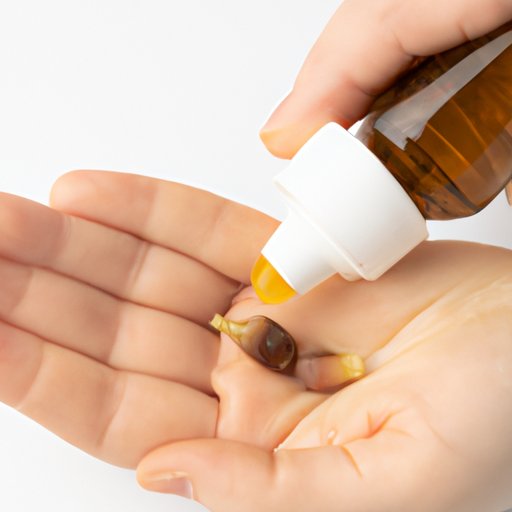Introduction
Fevers are a common symptom of various illnesses and infections. While they can be uncomfortable, fevers actually serve an essential purpose in fighting off infections by stimulating the immune system. However, when fevers get too high, they can be dangerous, especially for children and older adults. That’s why it’s crucial to know how to treat them. In this article, we’ll discuss natural, over-the-counter, home, and medical approaches to treating a fever, so you can make the best decision for your health.
The Natural Approach
Hydration and rest are two of the most effective ways to treat a fever. When experiencing a fever, your body needs more fluids than usual to support the immune system. Sipping on water, herbal tea, or clear broth throughout the day can help prevent dehydration, which can worsen fever symptoms.
In addition to hydration, certain herbal remedies can also provide relief from fever symptoms. Chamomile tea and peppermint tea are two popular options that can help soothe an upset stomach or calm inflammation in the throat. Meanwhile, elderberry syrup may help boost the immune system, thanks to its high antioxidant content. Eating foods rich in vitamin C, such as citrus fruits, broccoli, or red peppers, can also support the immune system.
Over-the-Counter Remedies
Acetaminophen and ibuprofen are two commonly used over-the-counter medications for reducing fever. Acetaminophen can be effective for treating mild to moderate fever, while ibuprofen is usually more effective for high fever. Both medications work by reducing inflammation and blocking the production of certain chemicals that cause fever. However, it’s important to follow the recommended dosage, which varies based on age and weight, to avoid overdosing, which can lead to liver damage or other serious side effects.
When taking OTC remedies, it’s essential to monitor your symptoms and avoid taking multiple medications that contain similar ingredients to avoid accidental overdoses. Additionally, OTC remedies should not be relied upon for prolonged periods. If your fever symptoms persist despite OTC treatment, it’s important to seek medical help.
Home Remedies
Home remedies can be an effective way to help bring down a fever when used appropriately. Applying a cold compress to the forehead, neck, or armpits can help cool down your body and provide temporary relief from fever symptoms. Similarly, taking a cooling bath with lukewarm or cool water has an overall cooling effect on the body.
While home remedies can be helpful, it’s important to note that they aren’t always effective or safe. For example, applying cold compresses for prolonged periods can cause shivering, which can increase the body’s temperature. Similarly, using too much ginger for fever relief can irritate the stomach or interact with medications.
Medical Approach
In some cases, fevers may require medical attention. If your fever is higher than 103 degrees Fahrenheit, if it persists for more than a few days, or if it’s accompanied by severe symptoms such as chest pain or difficulty breathing, it’s important to seek immediate medical help.
Medical professionals may use different treatment options depending on the cause and severity of your fever. Antipyretic medications, such as acetaminophen and ibuprofen, may be used to reduce fever and alleviate symptoms. Antibiotics may be prescribed if the fever is caused by a bacterial infection. However, antibiotics should only be used when appropriate, as overuse can lead to antibiotic resistance.
In severe cases, hospitalization may be necessary to closely monitor fever and manage any underlying complications.
Fever in Children
Treating fever in children requires special considerations. Only acetaminophen or ibuprofen should be used for children between the ages of 2 and 18. Aspirin should be avoided due to the risk of Reye’s syndrome, a rare but serious condition that affects the brain and liver. The dosage should always be based on the child’s weight and age, and the medication should be administered according to the instructions.
If your child has a fever higher than 100.4 degrees Fahrenheit, is younger than three months old, has difficulty breathing, or shows signs of dehydration, such as dry mouth or reduced urine output, you should contact a medical professional immediately.
Conclusion
Fevers can be uncomfortable and concerning, but they’re usually a sign that your immune system is doing its job. Knowing how to treat a fever is essential for managing symptoms and preventing complications. Approaches such as hydration, rest, and herbal remedies can be effective for mild fevers, while over-the-counter and medical treatments may be necessary for more severe cases. By following the appropriate guidelines, you can help your body fight off infections and stay healthy.
